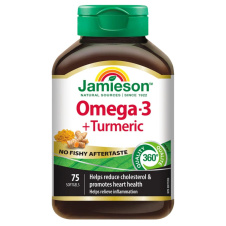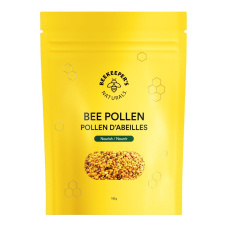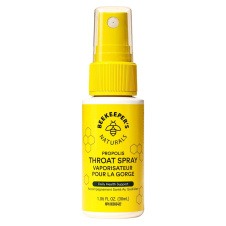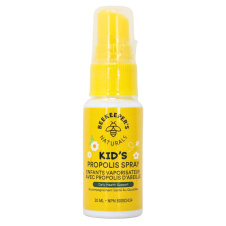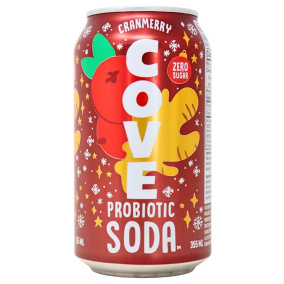
How to Naturally Relieve Seasonal Allergy Symptoms
Ah Spring, a time for renewal. The weather begins to warm up, the animals come out of hiding, the grass begins to turn green again and flowers bloom. It all sounds truly so magical — and it is, but it can also be dreadful for those who have seasonal allergies too!
For about 20-30% of people in Canada, itchy eyes and sneezing often come along with the April showers and May flowers. Allergy Season can bring symptoms that can be unbearable — and antihistamine medication can leave you feeling drowsy or worse. But alas, there are some natural solutions to help you ease your allergy symptoms and get relief from allergic rhinitis. Read more to learn more about seasonal allergies, what causes allergic rhinitis and what you can do to relieve yourself of dreaded allergy symptoms.
Disclaimer: This article was created for informational purposes only. Please consult with your health care team prior to making any changes to your diet or lifestyle.
What Are Seasonal Allergies?
Most people have seasonal allergies, but have you ever wondered what seasonal allergies are and what causes them? We’ll we did the research for you and we’ve come up with some answers.
The most common form of seasonal allergies is hay fever, also known as allergic rhinitis. Hay fever is an allergic reaction to pollen. In the Spring, as you know, pollination of grass, weeds, trees and flowers occur.
While some of these plants are pollinated by insects, the majority of seasonal allergies are caused by wind pollinated plants. These plants release small pollen particles into the air to help fertilize other plants — and it is this airborne pollen that is the root cause of your allergy symptoms.
Wind pollinated plants include oak, birch, cedar, maple, poplar, willow, elm and various other plants and flowers. Pollination season, which also aligns with allergy season, can begin in early and can run into June.
What Is An Allergic Reaction?
An allergic reaction is something that occurs when your immune system reacts to substances that otherwise would be considered to be harmless. Your immune system deems this substance as “dangerous” and triggers an allergic response to the substance. Your immune system responds by releasing histamines, which are chemicals made by your immune system in response to this tewction, into your bloodstream to try to get rid of whatever in your body that is is considered to be causing harm. The histamines are what cause the symptoms of an allergic reaction. During the Springtime, these substances (the pollen) are airborne and therefore, exposure to them is greater — thus the cause of allergic reaction during the spring months.
Most Common Seasonal Allergies
The most common seasonal allergies areyp tree pollens and grass pollens. You can be allergic to more than one type of pollen, which is why your seasonal allergy symptoms can be vast and plenty.
What are the symptoms of seasonal allergies?
Similar to symptoms of a cold, seasonal allergies typically affects your sinus and respiratory system. Not to sound like an ad for anti-histamines, but here are the pretty lengthy symptoms of hay fever:
-
Itchy, water eyes
-
Sneezing, runny nose and congestion, especially in the sinuses
-
Headache and fatigue
-
Coughing, wheezing and a sore throat
-
Post-nasal drip
-
Trouble sleeping
-
Dark circles under eyes
-
Temporary loss of smell
-
Breathing troubles and asthma attacks
-
Atopical eczema
With seasonal allergies, you can have all of the above symptoms or only some, and it truly depends on a variety of factors: everything from the types of or the number of pollens you’re allergic to any existing medical conditions you have to the strength of your immune system. Luckily, there is relief! And it doesn’t require heavy-duty prescription medication or a miracle. You can alleviate the symptoms of seasonal allergies with natural supplements!
Natural Ways to Relieve Symptoms of Seasonal Allergies
Maybe you’ve tried every over-the-counter antihistamine and nothing seems to work, or you’re not a fan of allergy medications because they make you groggy and drowsy, or maybe, you just want a natural alternative to help you get some allergy relief! Whatever your reason, rest (and breathe) easily, because there are some natural solutions to relieving seasonal allergies! Read ahead to find out:
Natural Remedies to Relieve Seasonal Allergies
If you find that your traditional anti-histamine just isn’t doing the trick when it comes to allergy symptoms relief, try adding these supplements to your routine:
Vitamin C: You already know that Vitamin C can boost your immunity when you’re sick, but did you know taking Vitamin C could also help to reduce histamines in your body, and offer natural relief to allergy symptoms, like sneezing and a runny nose.
Magnesium: Magnesium is a natural antihistamine; so if you’re deficient in Magnesium it could result in a more severe allergic reaction. Taking a magnesium supplement and eating magnesium-rich foods can help to ease troubles with breathing and provide relief to your respiratory system.
Vitamin D: Many people are deficient in Vitamin D, especially those who live in North America due to the winter season and daylight savings. The lack of exposure to Vitamin D as you are coming out of the winter and into spring means your Vitamin D levels could be at a low. Vitamin D deficiency can make your allergy symptoms more severe and reduce your lung functions Taking a Vitamin D supplement can help you to breathe better and decrease your inflammatory response.
Omega-3s: If you’re not a fan of fish, can’t eat fish for dietary or allergy reasons, or just find it hard to incorporate omega-3 fatty fish into your diet, taking omega-3s or fish oils can be a great alternative — and be helpful with your allergy symptoms too! Omega-3s can reduce inflammation and help prevent skin conditions, such as eczema.
Probiotics: They’re not just for your gut, probiotics can have anti-inflammatory benefits as well as anti-allergic effects. Incorporating probiotic-rich foods into your diet or taking a probiotic supplement may help to prevent allergies.
Bee Pollen: Ingesting small amounts of bee pollen could have a counter effect on your seasonal allergies. Sprinkle some bee pollen on your morning yogurt bowl and it could help offer some help with allergies, asthma and even chronic sinus infections.
Foods to Eat to Relieve Allergy Symptoms
You’re probably going to like this one! Who doesn’t love food? Even better, what you eat can help you to reduce your symptoms of allergic rhinitis! Add these foods to your grocery list or your next Natura Market order:
Wasabi: That’s right, the spicy green stuff that usually comes with your sushi order can help to alleviate allergy symptoms. Thanks to its bold, spicy taste, eating wasabi can help to open your sinuses, making breathing during allergy season easier. Snack on wasabi-flavoured seaweed snacks or add wasabi flavoured coconut aminos to your stir-fry, for a kick of heat and allergy relief.
Fatty Fish: Rich in Omega-3’s, eating fatty fish such as salmon, sardines, and tuna can help reduce inflammation and prevent swelling, which can decrease the symptoms of spring allergy season. Swap your usual protein for tuna or salmon and enjoy with salads, rice, or in a sandwich — and say goodbye to red, itchy skin.
Pineapple: Not only is it delicious, pineapple contains the enzyme extract bromelain, which can help to reduce seasonal allergy symptoms, such as itchy eyes, swelling and a runny nose. Snack on dried pineapple or add some pineapple chunks to your morning smoothie to naturally relieve congestion.
Broccoli: Load your plate with these leafy greens! Broccoli contains the natural antihistamine quercetin which can help to stabilize your body’s release of histamines, thus minimizing your reaction to airborne allergens. Try swapping regular rice for broccoli rice instead to help reduce your allergy symptoms.
Green Tea: Yet another reason to add a cup of green tea to your morning routine! Green tea might be known for its fat burning and metabolism-boosting qualities, but it can do more than that. Drinking green tea can help block your immune reactions to allergens. Sip on a cup (or two) of green tea and reap in all of its amazing allergy relief benefits.
Citrus Fruits: Another source of Vitamin C, citrus fruits such as oranges, lemons, and grapefruit can help to reduce your histamine levels and minimize your reaction to allergens. Add orange slices to your water and snack a medley of kiwis and strawberries.
Spirulina: You may not have heard of this blueish-greenish coloured algae, but you’re going to want to get acquainted with spirulina if Springtime leaves you with the sniffles! Spirulina can help to relieve sneezing and nasal congestion associated with allergic rhinitis. Try one of these drink mixes, made with spirulina, by brands Amara and Organic Traditions.
Turmeric: A powerful anti-inflammatory, adding turmeric to your diet can help to reduce swelling and inflammation caused by seasonal allergies. Add ground turmeric powder to your morning smoothie or turn into a latte.
Garlic, Chives and Onions: Add some bite to your cooking, and relieve your allergy symptoms with food! Onions, chives, and garlic, either ingested raw or cooked, can both provide you with a dose of antihistamine, which can help to alleviate congestion and other symptoms of seasonal allergies. Enjoy them in your pasta sauce, soup, stir frys, bagels, crackers, and more!
Other Tips to Relieve Allergy Symptoms
We aren’t done yet — nope! There are still a couple more things that you can do to alleviate the dreadful symptoms of hay fever! Along with supplements and eating the right foods, try incorporating a few of these as well, to truly feel your best this Spring!
Some Helpful Tips for Allergy Season
-
Drink lots of water to reduce histamine levels
-
Use a throat spray for sore throat relief
-
Carry a saline nasal spray in your bag to relieve congestion
-
Avoid hanging laundry outside to reduce the amount of pollen that’s coming into your home, as well as the amount on your clothes
-
Vacuum your home to remove any pollen that may have come in through doors, windows or people
-
Keep lawn mowing, weeding and gardening to a minimum, especially during days where the pollen count is high
-
Monitor pollen levels using a weather app
-
Keep windows in car and home closed to reduce the amount of pollen coming into your home
-
Change and wash clothes after being outside, use a scent free detergent — and shower to remove any pollen that may have landed in your hair or on your skin
-
Avoiding time spent outside during peak times when pollen count is high
Final Thoughts
Don’t freight over the fact that Spring is here — and pollen has made a comeback. Pollen may be in season, but allergic rhinitis doesn’t have to be. Step into Spring with grace and ease thanks to these natural seasonal allergy treatments and tips. Shop Natura Markets full selection of natural supplements for allergy relief here.



